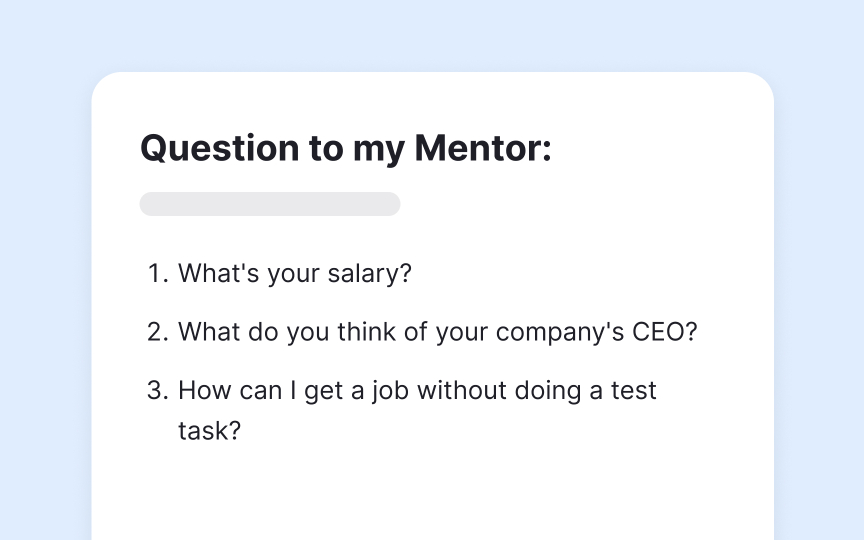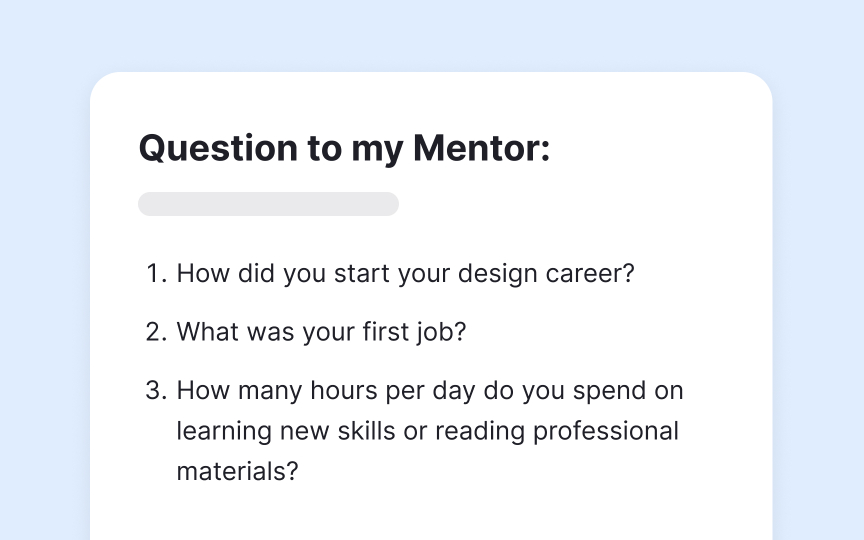Prepare a list of questions
Asking relevant and appropriate questions is a skill. It's much easier to articulate your questions when you have your goals clearly laid out in mind. For example, if you're focused on getting a job or transitioning to another industry, learning about the career path of your mentor can be helpful. You may ask them about their experience searching for their first job, the obstacles they met on their path, and what they learned from it.[1]
If your goal is to learn how to use a particular software, you may ask a mentor for more practical things, for example, the most popular keyboard shortcuts or Figma techniques and tutorials.
If you have a hard time formulating questions, think of your problem and what prevents you from reaching your goals. For example, you don't like your current position and want to focus less on design aesthetics and more on user psychology. What qualities do you lack to land a UX researcher or analyst job? What skills do you need for such roles? Or maybe, you have the skills but aren't sure how to customize your portfolio and CV to this role. Think of a specific problem, and the questions will pour in.
Pro Tip: Even if you've established a rapport with your mentor and sent each other memes, it doesn't mean you can ask questions about their personal life or salary, especially during the first session. Stick to your topic and choose only relevant questions.


